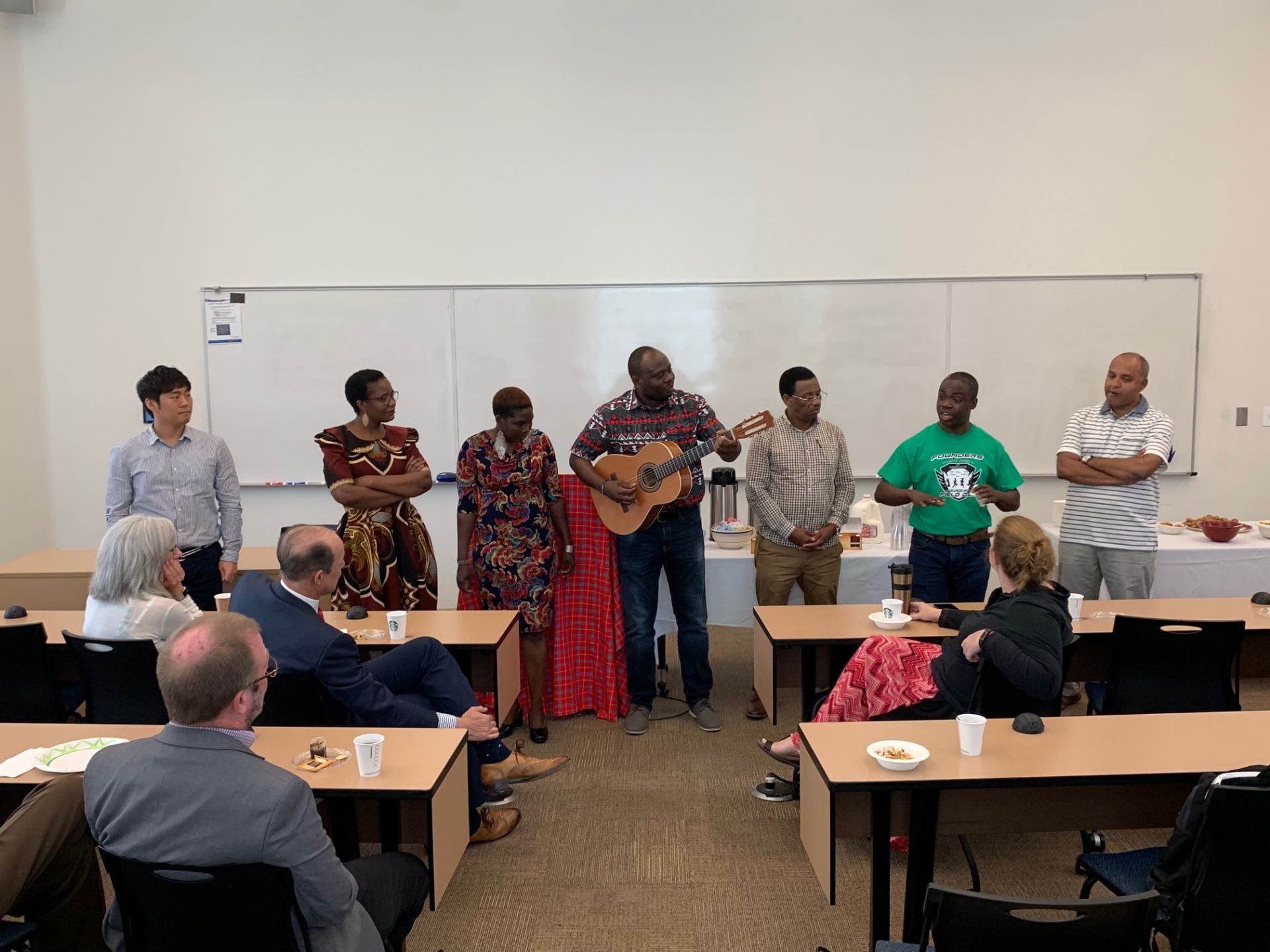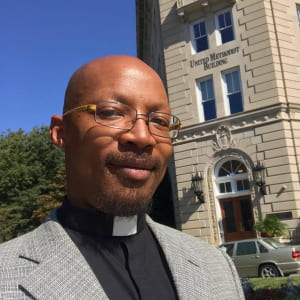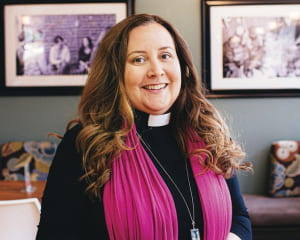About two dozen students, faculty and staff turned up for snacks and fellowship at the annual International Tea Time, a gathering for the community to get to know Perkins’s international students.
Students from the Democratic Republic of Congo, Zimbabwe, South Korea, India, Ghana, and Kenya led a singalong, with Francois Mukosa, a second year M.T.S. student, playing the guitar. The international students had the opportunity to introduce themselves individually.
Jae Jun “Daniel” Cho bowed to the group, demonstrating how he would greet people in his home country of South Korea. He expressed his gratitude for the missionaries who brought the Christian faith to Korea some 130 years ago. Cho grew up in a Methodist home – his parents are both pastors in the Korean Methodist Church and his grandmother is serving as a missionary in Myanmar. He also shared that American classrooms have been a bit of a cultural adjustment.
“In South Korea, students don’t express their opinions in the classroom,” he said. “I’m trying to be more talkative, but sometimes I feel I’m becoming a super impolite person!”
Alice Bonareri Ondieke of Kenya also expressed appreciation for the warm welcome she has found at Perkins. “I’m visually impaired and didn’t know anybody here,” she said. “It takes great faith to come so far away. You’ve been so good to me and I’m grateful for that.”
Mukosa expressed gratitude for the music that came with Western Christianity to his home country, the Democratic Republic of the Congo, and its nurturing power. Mukosa led the choir at Africa University, where he studied as an undergraduate, and was part of a musical group called Band Umoja back home.
“This music has helped sustain the church,” he said. “Maybe I can recommend this to you, too.”
Sumesh Jacob of India shared that his first name means “good sheep” and his last name, of course, comes from the Bible. He grew up in a community of Saint Thomas Christians, a group of Christians originally from Kerala, India, who trace their origins to the evangelism of Thomas the Apostle in the 1st century.
Many of the students came from large families back home. Ellen Chimowa of Zimbabwe is the first born of five children. Frederick Mensah of Ghana is one of seven children.
“In Ghana, everybody belongs to everybody and you have to think of everybody,” he said. “I think both cultures can learn from each other.” Mensah is an ordained Methodist elder and had a ministry in Germany for seven years before coming to Perkins.
Ishmael Mathiu noted that residents of his home country of Kenya speak some 42 different dialects; when he converses with Alice, they don’t speak in their mother tongues because they would not understand each other; instead, they speak Kiswahili. Mathiu, who is president of the International Students of Perkins, also expressed gratitude for Perkins’s welcoming atmosphere.
“We feel good when we are here,” he said. “We are home away from home.”
The gathering provided an enjoyable time of fellowship but also served as an important reminder, according to Dr. Robert Hunt, Director of Global Theological Education.
“Beneath the tea and unfamiliar snacks is a deep truth: our common humanity is manifest in diverse cultures,” he said. “And nothing helps us understand our common humanity more than when these diverse cultures are manifest in human form. At Perkins we meet the selves we’d never know in our students from foreign cultures. We learn more fully who we are from those most different from ourselves.”










